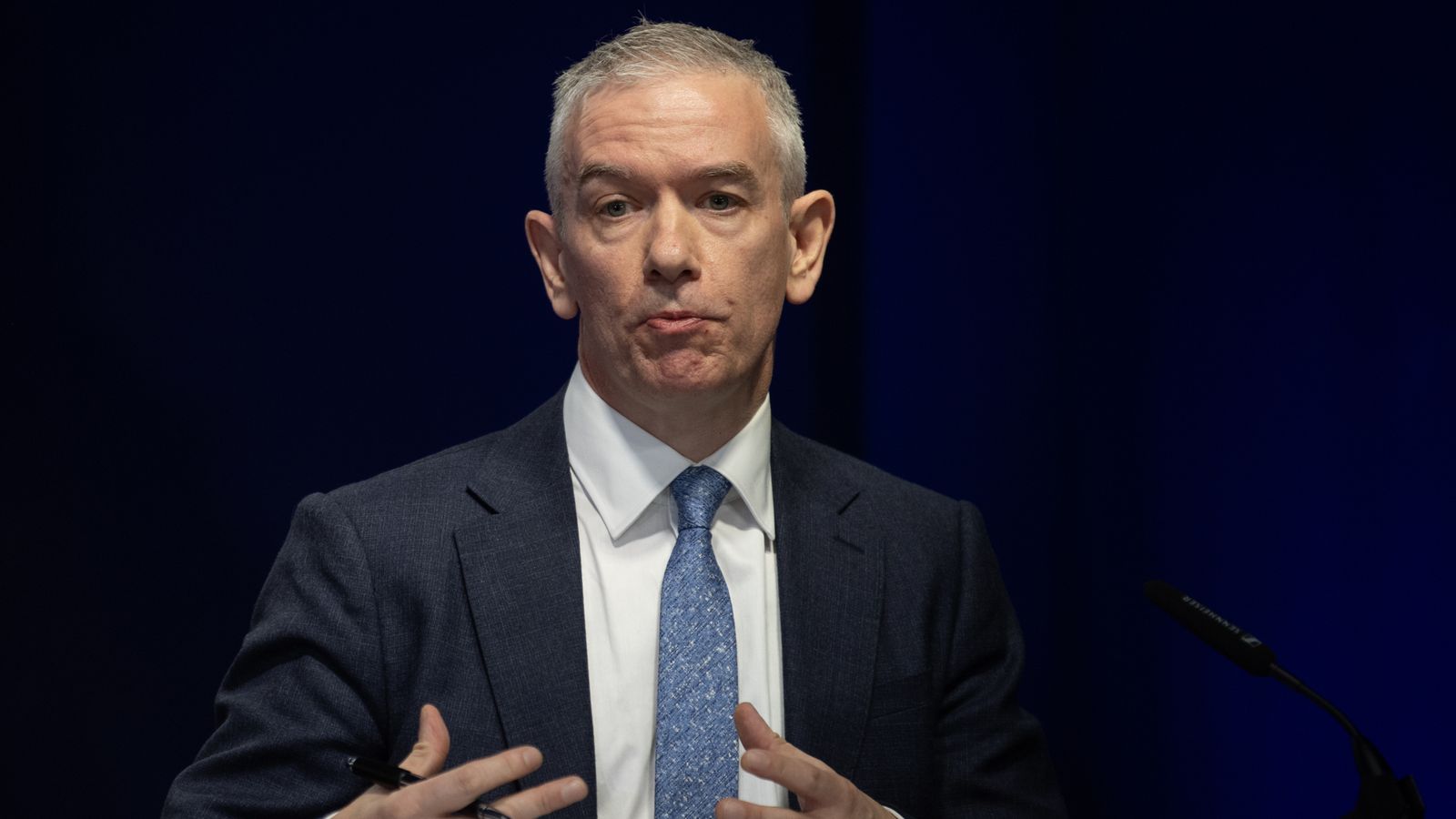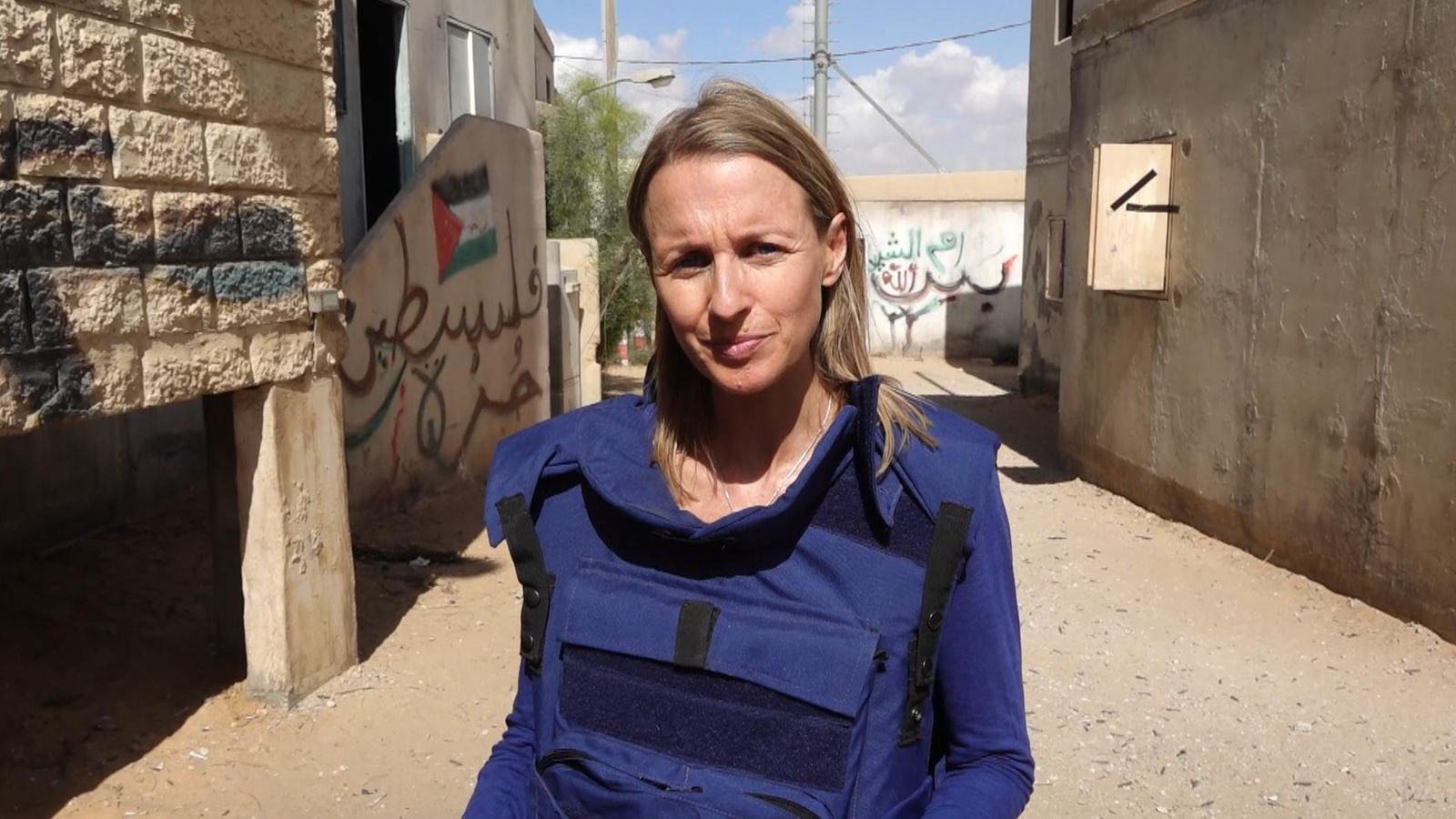Scotland’s chief medical officer told colleagues to delete WhatsApp messages “at the end of every day” during the pandemic, the COVID inquiry has heard.
Professor Sir Gregor Smith’s testimony has added to a growing political storm around the retention of informal messages by senior decision-makers and their advisers during the handling of COVID.
Former first minister Nicola Sturgeon and her deputy John Swinney did not retain messages, while the national clinical director, Professor Jason Leitch, said deleting messages was a “pre-bed ritual”.
A message from Sir Gregor in a group chat in July 2021 with other government medical advisers was shown at the hearing in Edinburgh on Monday.
Deputy chief medical officer, Professor Graham Ellis, said “hope this isn’t FOI-able?” in reference to freedom of information in an exchange where he appeared to joke about having “my own supply” of cannabis.
Responding, Sir Gregor said: “Delete at the end of every day…”
Asked about the comments by Jamie Dawson KC, counsel to the inquiry, Sir Gregor said: “Scottish government advice at this time was not to retain information for longer than it was necessary.
Nicola Sturgeon’s pandemic WhatsApp messages ‘all deleted’, UK COVID inquiry hears
Aberdeenshire mum launches legal action against NHS Grampian over daughter’s long COVID treatment
Scots share pandemic stories as UK COVID inquiry resumes in Edinburgh
“It was to make sure that information that was pertinent, any information – particularly discussions which ended up in a decision – was captured within the corporate systems.
“My practice was to make sure that any information which was important in that way was then captured in email form on the system, was formally recorded so that it was an auditable trail.
“And I think you will see evidence of my approach to this within the conversations and within other conversations where I exalt other members of those conversations to do the same.”
Asked if he deleted messages at the end of every day, Sir Gregor said: “If not at the end of every day, then certainly on a frequent basis. I deleted information which was no longer needed to be kept.”
Information that the chief medical officer deemed pertinent would not be recorded “verbatim”, he added, saying the “essence” of decisions or information given would be.
Sir Gregor went on to say advice had been given to Scottish government employees to regularly delete informal messages, “partly for security purposes”.
Read more:
‘COVID is not finished’: Scots share pandemic stories
Mum launches legal action over daughter’s long COVID treatment
Be the first to get Breaking News
Install the Sky News app for free
The chief medical officer, who took over the post after his predecessor, Dr Catherine Calderwood, broke lockdown rules to visit her second home, also told the inquiry the loss of life in Scotland due to COVID was “inevitable” due to the scale of the pandemic.
Asked by Mr Dawson if the Scottish government believed “no death from coronavirus was acceptable”, the chief medical officer said the phrase was not one that he recognised.
“Certainly from a clinical perspective, there was a deep realisation – tragic though it is, and it was an absolute tragedy for some families – that it was almost inevitable given the scale of the threat which was faced by a novel virus in a population that had no immunity to it, it was likely that there were going to be deaths,” he said.
The Scottish government, he said, would do its best to try to “limit the harm” caused by the virus.








